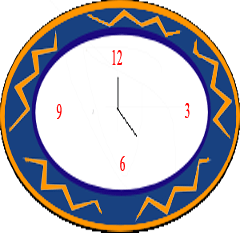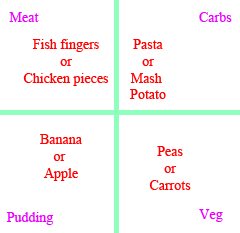Is Your Toddler A Fussy Eater?

Making sure your toddler has a good diet is a very important.
Your toddler needs to eat in order to grow, play and explore the world. Without the right food, your toddler will become tired quicker than other children, they are more likely to have tantrums and a poor diet could affect their health and development.
So the problem occurs when your toodler will only eat junk food or certain foods and will not try any other foods (no matter how hard you try).
The easy way to combat this, is when your child is young, encourage them to eat the healthy foods, give them snacks of fruits etc instead of allowing them to have junk food. This way if your toddler hasn't tried it (or knows its only for special occassions) they wont crave it.
For those reading this that have already gone past that stage, dont worry. There are lots of different techniques you can use to get your toddler eating all the correct food and stop all the bad meal time habits.
Have a read through this article and use some of the tips from Meal Times And The Terrible Twos to improve your toddlers eating habits and have happy meal times.
Get your toddler interested and involved in making in food
Get your toddler interested in food. Excite them with different colours and textures.
Get your toddler involved in preparing and making their own food. By giving them simple tasks such as washing the lettuce or putting cut up tomatoes on a plate, you are providing your toddler with a chance to get interested in food.
They get to experience making their own food (even if you have done 99% of it, the 1% they have done will capture their interest and encourage them to try new things).
Getting your toddler involved can be taken a step further by getting toddlers to help you to grow their own vegetables and salad. I’m not talking about anything as extravagant as buying an allotment. All you need to do is something as simple as plant a tomato plant in a pot and have in on the windowsill.
Reading books about how a plant grows and why it is important to water them etc will help to further your toddler’s interest. You could even buy them their own little watering can so they can water it and watch it grow.
By doing this you are not only developing your toddler’s knowledge and imagination, you are taking the fear out of food.
Imagine if someone gave you something on a plate and made you eat it. Now imagine you know exactly what the food is, where it came from, why it looked like it does etc. Which would you feel happier about eating? Which would you enjoy eating?
Let your toddler choose their meal
One way to encourage your toddle to eat is to create a meal wheel for them. This gives them two options to choose for their meal (and what you cook will get eaten). So for example, you could offer your child a choice between fish fingers or chicken pieces, peas or carrots, mash potato or pasta. Letting your toddler choose allows them to feel in control whilst you ensure they get a healthy meal.

When making the meal wheel, make it more fun and interesting. Buy some paper plates, divide them up into sections and write the meal time options on them in bright colour's, possibly with a picture of two (the funnier the better, so don’t worry if your art skills aren’t up to scratch).
You can reuse the wheels too, so make sure you keep them.
Use charts to reward your toddler
Along with meal wheels, reward charts are great at encouraging your child to eat. For example, have a place eat for your toddler with the four different categories of the meal wheel on it. Every time they try one of the four sections, give them a sticker. When they get so many stickers, they get a reward (for example, they can go to the park, or you will buy them a new toy.
Things to remember when it comes to your toddler and meal times
The most important things to remember when having meal times are:
- Reward good behaviour (trying new foods etc)
- Ignore bad behaviour – your child will not starve from missing one meal.
- Develop your toddlers interest in food
- Have a set routine
- Allow your toddler to get involved and enjoy food.
